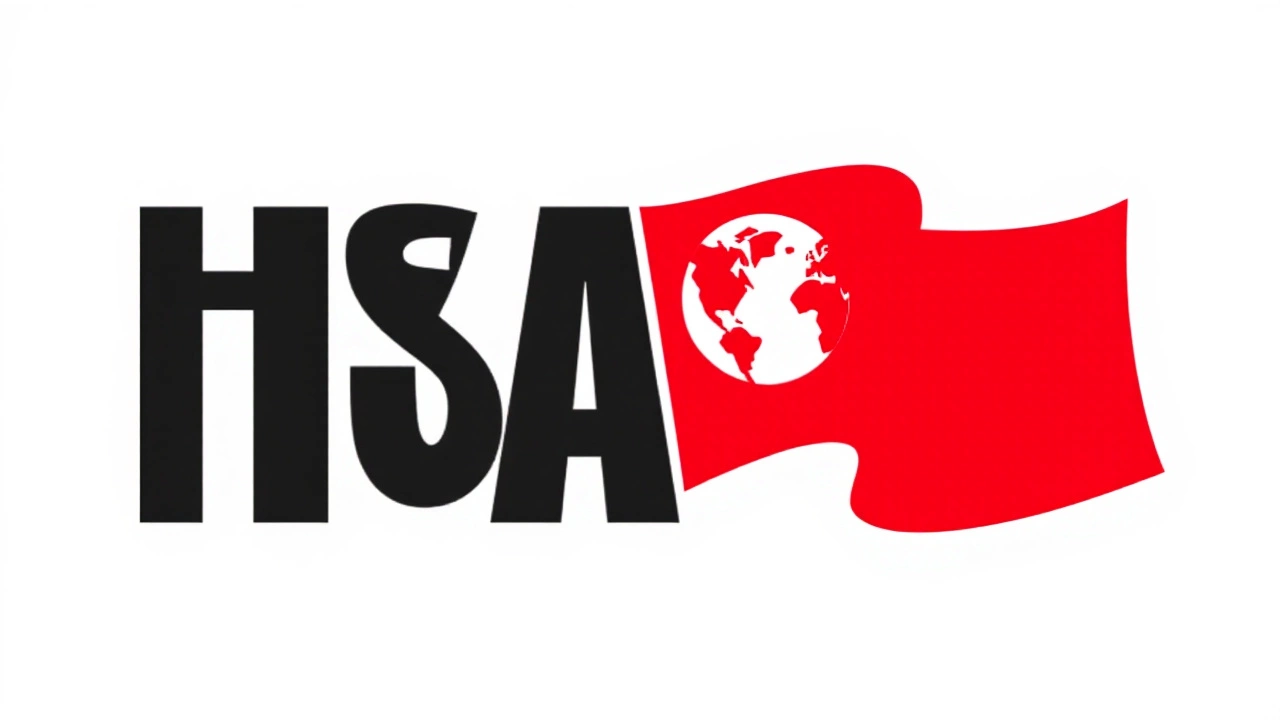
On November 18, 2025, the United Nations is scheduled to vote on a resolution titled "Trump's Plan: No Peace or Solution for Gaza"—a move that has already sparked organizing efforts by the International Socialist Alternative (ISA), including its active network in Costa Rica. The announcement, surfaced through ISA’s "Costa Rica Archives" on its global platform, isn’t just a diplomatic calendar item. It’s a flashpoint in a broader ideological struggle. For socialist activists across Latin America, the vote represents not just foreign policy, but the potential return of a U.S. administration they see as hostile to global justice movements.
How a Socialist Network in Costa Rica Is Preparing for the Vote
The International Socialist Alternative, formerly the Committee for a Workers' International (CWI), has maintained a digital archive on internationalsocialist.net detailing its work in Central America. The "Costa Rica Archives" section—though sparse in names and personnel—shows clear evidence of sustained engagement. Materials reference "Building The Movement For Socialism In The Age Of Trump 2.0," a phrase that speaks volumes. It’s not just about Donald Trump’s past presidency. It’s about the fear, shared among leftist groups globally, that he’ll return to power in 2024 and intensify U.S. support for Israel’s military actions in Gaza.What’s striking is how localized this global tension becomes. While no specific Costa Rican union leaders or party figures are named in the archive titles, the fact that ISA maintains a dedicated country section suggests an organized, if low-profile, presence. Socialist movements in Costa Rica have historically been tied to labor unions and public sector workers. Now, they’re being pulled into an international moment—one where a UN vote in New York could ignite street actions in San José.
The 2020 Congress That Still Shapes Today’s Strategy
The foundation for ISA’s current stance traces back to its 12th World Congress, held in January–February 2020. That gathering—still the most recent full congress—passed resolutions condemning U.S. imperialism, militarism in the Middle East, and the erosion of workers’ rights under neoliberalism. Those documents weren’t filed away. They’re being dusted off. The resolution on Gaza, for example, explicitly called for a global boycott of Israeli arms manufacturers and condemned U.S. vetoes at the UN Security Council. Fast forward to 2025, and those same arguments are being repackaged for a new political climate.What’s changed? The stakes. In 2020, Trump was still president, but Gaza was under siege, not in open war. Now, after the October 7 attacks and the ensuing Israeli bombardment that killed over 40,000 Palestinians, the international pressure is mounting. The November 2025 vote isn’t a routine resolution. It’s a litmus test. Will the UN General Assembly, dominated by Global South nations, finally break the deadlock? Or will Western abstentions, again, silence the majority?
Why "Trump 2.0" Is a Rallying Cry in Costa Rica
The term "Trump 2.0" isn’t just rhetoric. It’s shorthand for a feared return to policies that have already devastated global solidarity movements. During Trump’s first term, the U.S. recognized Jerusalem as Israel’s capital, cut funding to UNRWA, and withdrew from the Iran nuclear deal—all moves that emboldened hardliners in Tel Aviv. ISA members in Costa Rica, like those in Brazil, Mexico, and South Africa, see a direct line from Washington’s foreign policy to local repression. When the U.S. backs occupation, it signals to authoritarian regimes worldwide that violence against dissent is acceptable.Costa Rica, long a democratic outlier in Central America, isn’t immune. The country’s left has faced increasing marginalization since 2018, with progressive candidates losing ground to centrist coalitions. But the Gaza crisis has reignited campus protests, union solidarity campaigns, and even church-led vigils in San José. The UN vote in November 2025 is being framed by ISA as a moment to reclaim moral authority—to force governments, including Costa Rica’s, to choose sides.

The Ripple Effect: What This Vote Could Mean Beyond Gaza
If the resolution passes, it won’t be binding—but it will be symbolic. It could trigger divestment campaigns targeting companies linked to Israeli defense contractors, similar to the BDS movement’s impact on South Africa in the 1980s. It could also pressure Costa Rica’s government to reevaluate its diplomatic alignment. While San José has historically avoided taking strong stances on Middle Eastern conflicts, a UN vote with overwhelming support could make neutrality politically costly.Conversely, if the resolution fails—or is watered down by U.S. and European pressure—it could signal to global leftists that multilateral institutions are broken. That might lead to more radical tactics: mass civil disobedience, coordinated strikes, or even calls for a new international alliance outside the UN framework. The ISA’s archives suggest they’re already preparing for both outcomes.
What Happens Next? Mobilization, Not Just Monitoring
ISA isn’t just watching. They’re building. Their "Costa Rica Archives" include calls for study groups, solidarity events with Palestinian diaspora communities, and training for legal observers at future protests. One internal document, dated March 2024, mentions "preparing for the November 2025 mobilization wave," suggesting months of groundwork are already underway. Local chapters are being encouraged to collaborate with student unions, feminist collectives, and environmental groups—framing Gaza not as a distant conflict, but as part of a global struggle against capitalism and militarism.The real question isn’t whether the UN will vote. It’s whether the people in Costa Rica, and beyond, will show up when it matters. The archives don’t just document history. They’re a playbook for what comes next.
Frequently Asked Questions
Why is the UN voting on a U.S. political plan in 2025?
The resolution isn’t about Trump’s plan as policy—it’s a symbolic response to his administration’s past actions and fears of their return. The UN General Assembly regularly votes on Palestinian rights, even when U.S. vetoes block Security Council action. This vote, scheduled for November 18, 2025, is meant to reaffirm international consensus on a two-state solution and condemn U.S.-backed military escalation.
Is the International Socialist Alternative a major political force in Costa Rica?
Not in electoral terms. ISA has no parliamentary representation in Costa Rica and no public membership numbers. But as a transnational network with roots in labor and student movements, it influences discourse through publications, protests, and educational campaigns. Its "Costa Rica Archives" indicate sustained, if quiet, activity—not leadership, but ideological groundwork.
What’s the connection between Trump’s potential second term and Gaza?
During Trump’s first term, the U.S. moved its embassy to Jerusalem, cut aid to UNRWA, and backed Israeli military operations without criticism. ISA and other socialist groups fear a second Trump term would escalate these policies—increasing arms sales to Israel, isolating Palestinian leaders, and blocking any UN peace efforts. That’s why "Trump 2.0" is a central rallying cry.
How does this affect ordinary people in Costa Rica?
For many, it’s about moral alignment. Costa Ricans have a strong tradition of neutrality and human rights advocacy. If their government stays silent while the UN votes, activists argue it undermines that identity. The vote could spark campus protests, boycotts of U.S. brands, and pressure on local politicians to take a stand—even if it’s just a symbolic resolution in the Legislative Assembly.
Has the Costa Rican government commented on the upcoming UN vote?
No official statement has been issued as of now. Costa Rica’s Ministry of Foreign Affairs typically avoids preemptive commentary on future UN votes. However, past positions show support for Palestinian statehood and criticism of Israeli settlements. The November 2025 vote may force a clearer public stance, especially if public pressure grows.
What’s the likelihood the resolution will pass?
Historically, similar resolutions pass with overwhelming support—often 120+ votes in favor—with only a handful of countries opposing, mostly U.S. allies. In 2023, a comparable resolution passed 153–10. With global outrage over Gaza’s humanitarian crisis still high, the 2025 vote is expected to mirror or exceed that margin, even if the U.S. and Israel lobby hard.